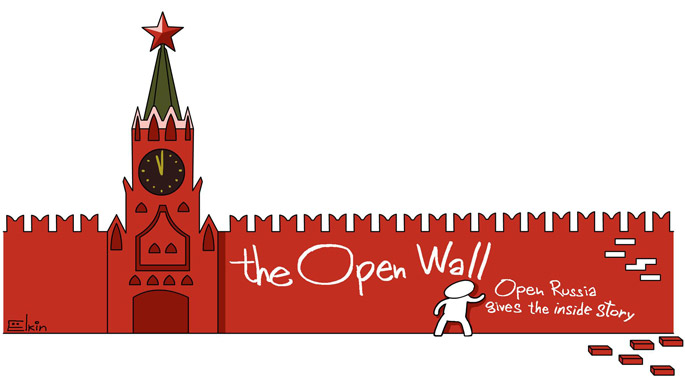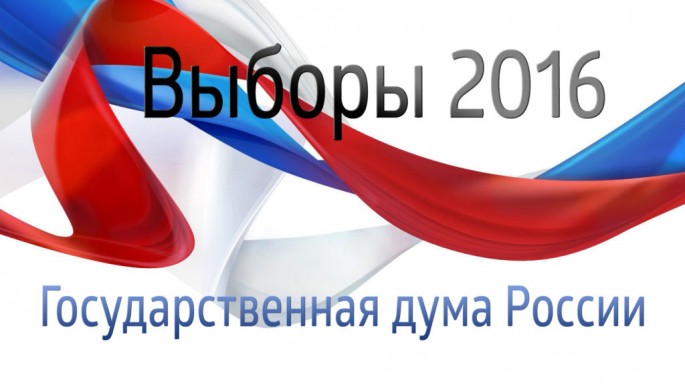The Invisible Elections

The Invisible Elections
Elections, what elections? You mean the US presidential elections? Oh! You mean those elections …

Ilya Klishin
In Russia, politics has, to put it mildly, long been lacking in intrigue. The healthy kind of intrigue, that is; the kind when, several months before the election, you’re still in the dark as to which party’s going to emerge victorious. In Russia, it’s always obvious in advance who’s going to claim first spot, and as for the rest – well, the rest is just nuances.
The questions that genuinely inflame Russians’ curiosity are very different from those that tend to be asked in, say, Vancouver, Munich or Sydney. For example, will this or that opposition leader be given a suspended sentence, or will they be hauled straight off to jail? Who could be shot next? How many independent media outlets might be shut down this year? Who’ll be allowed to take part in the elections, and will parties and candidates have to sign a secret loyalty contract with the Kremlin if they want to get the green light?
Meanwhile, the question of a possible turnover of power isn’t even on the agenda. This is never explicitly voiced; it’s simply understood as a matter of course. The Centre for Combating Extremism now launches legal proceedings against people calling online for “forced regime change,” with such incredible frequency that the word “forced” has been rendered invisible; it would seem that the very desire to see another president (and another party) in power has now become unlawful.
Prior to 2016, however, this was never admitted directly. There have always been various kinds of bogus opposition parties (communists, social democrats, nationalists, populists and even puppet liberals), and, in the run-up to an election, they’d all stir up a big brouhaha and put on a sham show of self-belief (“but of course we can win!”). No one believed them, of course, but at least people were taking some sort of action (futile though it might be) in preparation for the election: putting up billboards, handing out newspapers, airing TV commercials …
This year has seen the birth of a new, post-Crimea politics. When it comes to elections there’s nothing. Zilch. If you’re unaware that the Duma elections are due in a matter of weeks, walking around Moscow isn’t going to enlighten you – you could wander for hours on end and still not encounter a single indication of their imminence.
In the wake of the annexation of Crimea in 2014, the so-called official opposition parties have revised their attitude to everything. Now they all support Putin and criticise only individual “miscreant-ministers” and “local excesses.” The events of the last two years have proved that it would be futile to drag out the farce. So they do absolutely nothing. And, really, what would be the point? They’ll still get their five or ten or fifteen per cent. Purely by dint of inertia. And if they fail to get even that, their numbers might be retouched just a little. It’s not only United Russia’s numbers that can be retouched, after all.
Is this good or bad? Most likely the former. Better to acknowledge death (in this case, the death of all vitality in Russian politics) than to engage in a painful mimicry of life. And the rationale behind this is completely understandable. Aside from the post-Crimea effect, there’s also the fear of another 2011. In fact, preventing a repeat of that year, preventing a rerun of those totally unexpected, hundred-thousand-strong rallies, has been the cornerstone of Russian domestic politics over the last half-decade. Back then, the non-systemic opposition effectively subverted the order that had existed for the previous ten years, and proposed voting for systemic opposition parties as if this were some kind of protest referendum: vote for any party other than United Russia. Systemic, non-systemic – what a hateful and numbing indictment of the politics we now have.
As a result of this charade, even United Russia failed to win 50% of the vote – all the falsifications notwithstanding – which, in conjunction with everything else, is what catalysed the protests. Since then, the legal, systemic opposition has almost deliberately discredited itself in the Duma; for it is the opposition, and not the party of power, that have proposed the most inhuman laws. This, too, is probably why they’re now all sitting quietly and not sticking their necks out – just so it doesn’t occur to anyone to advocate a protest vote for them (although, if we’re being honest, no one was planning to do that anyway).
Looks like the presidential administration can crack open the champers ahead of time. The elections have been won a month prior to actually being held. No one’s talking about them. No one’s interested in them. The elections have become invisible. And yet, it’s precisely invisible elections that might end up spawning something completely unpredictable. Only a month to wait now.



